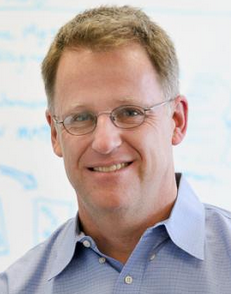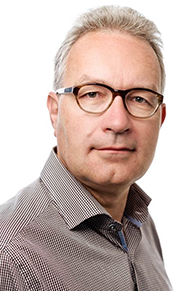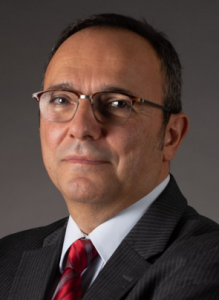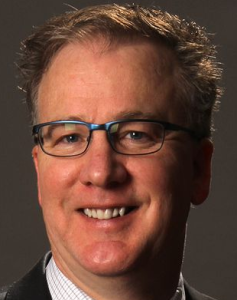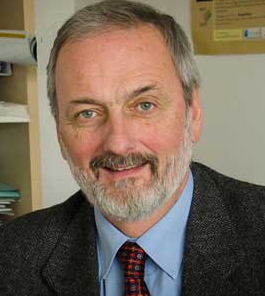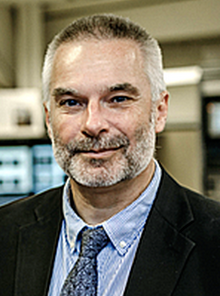List of SIB members for the period: 2021-2023
| # | Picture | Name | Short biography |
|---|---|---|---|
| 1 | Ian Foster | Director of Argonne’s Data Science and Learning Division Dr. Ian Foster is the Director of Argonne’s Data Science and Learning Division, Argonne Senior Scientist and Distinguished Fellow and the Arthur Holly Compton Distinguished Service Professor of Computer Science at the University of Chicago. He was the Director of Argonne’s Computation Institute from 2006 to 2016. Foster’s research contributions span high-performance computing, distributed systems, and data-driven discovery. He has published hundreds of scientific papers and eight books on these and other topics. Methods and software developed under his leadership underpin many large national and international cyberinfrastructures. Foster received a BSc (Hons I) degree from the University of Canterbury, New Zealand, and a PhD from Imperial College, United Kingdom, both in computer science. He is an elected Fellow of the American Association for the Advancement of Science, the Association for Computing Machinery, and British Computer Society. | |
| 2 | Erik Huizer | CEO of GÉANT Erik Huizer has a long-standing involvement with the NREN community and took on the role of interim CEO for GÉANT in July 2017. Until then, he was CTO of SURFnet and a member of the GÉANT Association Board of Directors. Before SURFnet, Erik served as Managing Director for ICT at the Netherlands Organisation for Applied Scientific Research (TNO). Erik has fulfilled various board-level functions of Internet related organisations and for over 30 years has been involved in education and research networking, Internet standardisation and Internet governance. For his contributions to the Internet he was inducted into the Internet Hall of Fame in 2014. | |
| 3 | Yannis Ioannidis | Professor of Informatics and Telecommunications at the University of Athens Yannis Ioannidis is a Professor of Informatics and Telecommunications at the University of Athens as well as an Associated Faculty at the Athena Research and Innovation Center, where he also served as the President and General Director for 10 years (2011-2021). His research interests include Database and Information Systems, Data Science, Data and Text Analytics, Recommender Systems and Personalization, Data Infrastructures and Digital Repositories, and Computer-Human Interaction. His work is often motivated by data management problems that arise in diverse industrial environments or in the context of other scientific fields (Life Sciences, Cultural Heritage, Biodiversity, Physical Sciences). | |
| 4 | Joe Miller | Executive Secretary of GBIF (Global Biodiversity Information Facility) A researcher who has spent the majority of his career at the Australian National Herbarium after earning his PhD at the University of Wisconsin-Madison, Miller joins GBIF after a five-year tenure at the U.S. National Science Foundation (NSF). As a researcher, Miller has studied the evolution, biogeography and systematics of the Australian flora, with a particular focus on the plant genus Acacia. For the past three years, he has led NSF’s international science diplomacy efforts in biology. Miller’s current research focus is in the field of spatial phylogenetics, integrating GBIF species occurrence data with phylogenies that describe the evolutionary relationships between organisms. In 2013, Miller left Australia to join NSF, helping to develop programming for research funding for U.S. researchers in systematics and biodiversity science. While leading NSF’s international science diplomacy in biology since 2016, he has focused on developing opportunities for increased international science collaboration for U.S. researchers and their international partners. | |
| 5 | Giorgio Rossi | Professor of Physics, State University of Milan Giorgio Rossi is Professor of Physics at the Università degli Studi di Milano; he leads the APE (Advanced Photoelectric Effect Experiments) and NFFA group at CNR-IOM and Elettra in Trieste performing research in surface and interface science and operating advanced synchrotron radiation beamlines and in-situ growth laboratories that are open to academic as well as industrial users. He coordinates the NFFA-Europe (Nano Foundries and Fine Analysis) European infrastructure since 2008. He has chaired the Physical Sciences and Engineering Strategy Work group of European Strategy Forum on research Infrastructures (ESFRI) in 2013-2016, and serves as ESFRI Chair since July 1st, 2016. He serves as Chair of the GSO-G8+5 group on Global Research Infrastructures in 2017 | |
| 6 | John Womersley | Director General of the European Spallation Source ERIC He previously held the position of Chief Executive of the Science and Technology Facilities Council (STFC), the United Kingdom's funding agency for large-scale science facilities and national laboratories, particle physics, nuclear physics and astronomy. He led the UK’s membership of the European XFEL, ESS, and the SKA telescope project, and established the Hartree Centre as a £300m joint project with IBM. A graduate of Cambridge and Oxford (D. Phil. Experimental Physics), Prof. Womersley has played a leading role in particle physics both in Europe and the United States. John worked at Fermilab before becoming a scientific advisor to the Department of Energy in the US. He returned to the UK in 2005 to become Director of the Particle Physics Department at the STFC Rutherford Appleton Laboratory at a time when it was building and delivering vital components to CERN's Large Hadron Collider. In time John took on a broader role as Director of the Science Programmes Office and was then appointed Chief Executive in 2011. He has served on the councils of CERN and ESO, the Fermilab (FRA) Board and the board of AURA. John has chaired the European Strategy Forum on Research Infrastructures (ESFRI) and the European Commission's Expert Group on Cost Control and Management in Large Research Infrastructures. John has also served on numerous review panels and boards as an expert including the Helmholtz Association and the Human Brain Project. |
